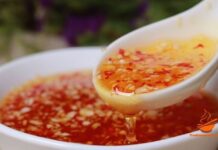Molasses is a sweet syrup often used in cooking. Today, we will share with you more information about molasses in the following article.
1 What is Molasses?
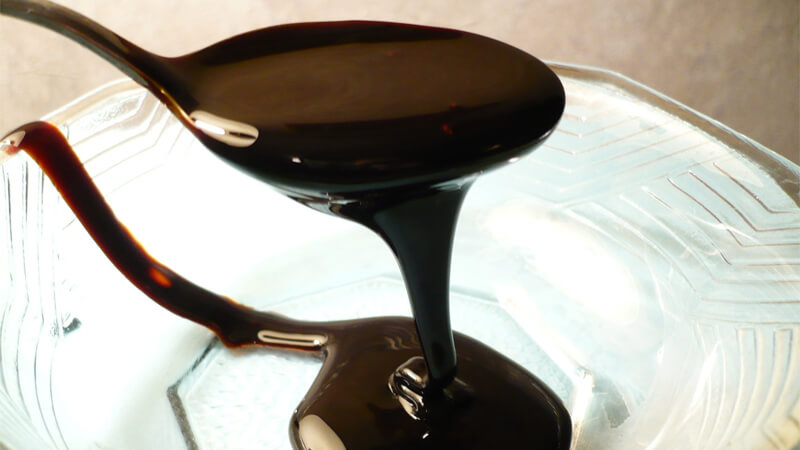
Molasses is a liquid, syrup-like substance with a golden hue and a sweet taste. It is produced by boiling and reducing sugarcane juice, a process also known as “tre kéo” or “mật kéo” in Vietnamese.
Molasses is a great alternative sweetener and is sweeter than regular white sugar.
Additionally, molasses is a nutritious food that contains various vitamins and minerals such as , and . As such, it offers multiple health benefits.
The production of molasses has become a traditional craft in many rural areas of Vietnam, especially in the northern midlands and the provinces of Nghe An and Thanh Hoa.
In daily cooking, molasses can be used as a substitute for refined sugar in baking, confectionery, and desserts.
According to Eastern medicine, molasses also has therapeutic properties for respiratory and digestive ailments.
2 Benefits of Molasses
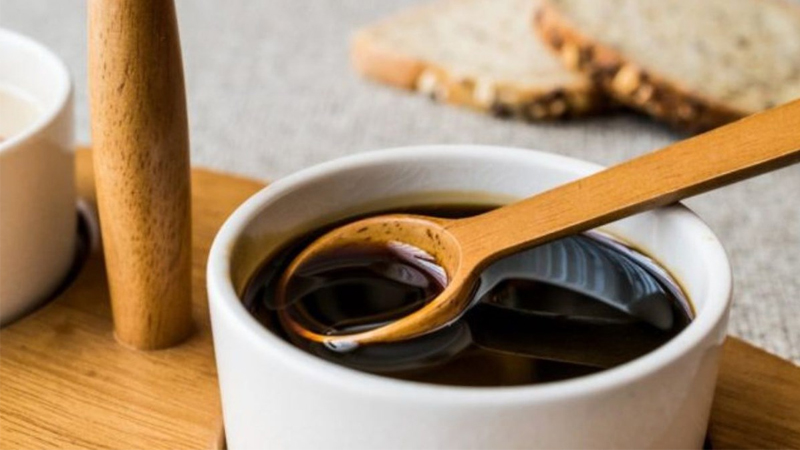 Benefits of Molasses
Benefits of Molasses
Antioxidant Properties
Molasses contains high levels of antioxidants, which protect the body from oxidative stress and combat free radicals that can cause degenerative diseases.
Reduces Menstrual Symptoms
Molasses is an excellent source of iron for women, especially those at risk of iron deficiency due to blood loss, low dietary intake, and restricted calorie intake.
Iron also helps the body prevent various menstrual disorders by regulating blood flow during this time.
Additionally, minerals such as magnesium and calcium in molasses can prevent blood clots, reduce menstrual cramps, and maintain a healthy cervix.
Prevents Obesity
The antioxidant properties of molasses help reduce obesity and curb weight gain. It also lowers body weight and fat content by reducing calorie absorption.
Improves Sexual Health
The high manganese content in molasses increases the production of sex hormones as manganese plays a crucial role in the functioning of the nervous system, preventing blood clots, and energy production from proteins and carbohydrates.
Research indicates that manganese deficiency can lead to infertility, chronic fatigue, and weak bones.
Maintains Bone Health
Molasses is rich in calcium, which is essential for maintaining bone and dental health, producing enzymes, and supporting cell membrane functions.
Anti-Inflammatory Properties
Molasses possesses natural anti-inflammatory properties that help alleviate disorders related to inflammation.
It is also used in pharmaceutical preparations to treat conditions such as rheumatism and neuralgia.
Controls Blood Sugar Levels
According to the Lao Dong newspaper, molasses can maintain blood sugar levels by slowing down the metabolism of proteins and carbohydrates, leading to reduced fat accumulation in the blood.
Additionally, molasses contains the mineral chromium, which helps regulate blood sugar levels.
With a chromium content of 0.266 mg/kg, molasses helps prevent glucose intolerance and the development of chronic diseases such as atherosclerosis, hyperlipidemia, and cardiovascular disease.
Prevents Hypokalemia
The potassium in molasses helps prevent the contraction of nerves and muscles and promotes heart health.
Consuming molasses helps prevent disorders related to potassium deficiency.
Molasses has a multitude of benefits
Reduces Acne Symptoms
Molasses contains lactic acid, which helps reduce acne breakouts. Lactic acid is produced by lactic acid bacteria and plays a crucial role in carbohydrate metabolism.
Accelerates Wound and Burn Healing
Molasses contains essential minerals that promote the growth of skin tissues. Therefore, it is used in the treatment of wounds and burns.
Increases Production of Healthy Red Blood Cells
Molasses stimulates iron absorption, promotes the formation of red blood cells, and boosts the immune system.
It is also rich in copper, which helps reduce the number of free radicals in the body.
Iron and copper deficiencies can lead to anemia, thyroid problems, heart rhythm disorders, and osteoporosis.
Maintains Healthy Hemoglobin Levels
Molasses contains iron, which helps maintain optimal hemoglobin levels. Hemoglobin is responsible for transporting oxygen from the lungs to all parts of the body, generating energy, and stimulating metabolism.
Supports Nervous System Health
The magnesium in molasses soothes the nerves and blood vessels by balancing calcium levels.
Magnesium deficiency can lead to high blood pressure, muscle cramps, and fatigue.
Prevents Headaches and Fatigue
A 2004 study published in the journal Psychotherapy and Psychosomatics found that depressed individuals often had low levels of vitamin B6. However, the high niacin and riboflavin content in molasses helps prevent symptoms like headaches, asthma, fatigue, and depression.
Promotes Healthy Hair
Molasses extract helps strengthen hair, enhance shine, and prevent premature graying.
According to Eastern medicine, molasses has a sweet taste and a cooling nature. It helps clear heat from the body, generate body fluids, moisturize dryness, and regulate qi. It can be used to treat conditions such as dry cough with little phlegm, coughing up blood, loss of body fluids due to stomach heat, red tongue with little coating, dry mouth and throat, frequent vomiting, irritability, constipation, alcohol poisoning, and weakness of the spleen and stomach. It also helps regulate qi and blood, improve appetite, and promote digestion.
3 What is Molasses Used For?
 Traditional Vietnamese Cakes Made with Molasses
Traditional Vietnamese Cakes Made with Molasses
Molasses shares similar characteristics with honey and is commonly used in cooking and baking. In Northern Vietnam, molasses is used to make traditional cakes such as bánh trùng (a variation of bánh trôi from Vinh Phuc province), bánh giò, bánh chay, and sủi dìn.
In Nghe An and Ha Tinh provinces, molasses is used for cooking dishes like kho (a stewing technique), making cakes such as bánh khảo and bánh ngào, or preparing desserts like chè (sweet soup). It is also used as a dipping sauce for steamed sticky rice and boiled cassava.
In Central Vietnam, molasses is an ingredient in bánh chưng (square sticky rice cake), bánh gai (a sticky rice cake made with glutinous rice and mung bean), and chè lam (a traditional Vietnamese candy made from ground glutinous rice and molasses).
In Southern Vietnam, molasses is commonly used as a substitute for sugar and honey in cooking.
4 How to Make Molasses
The process of making molasses involves three main stages:
Stage 1: Sugarcane Juicing
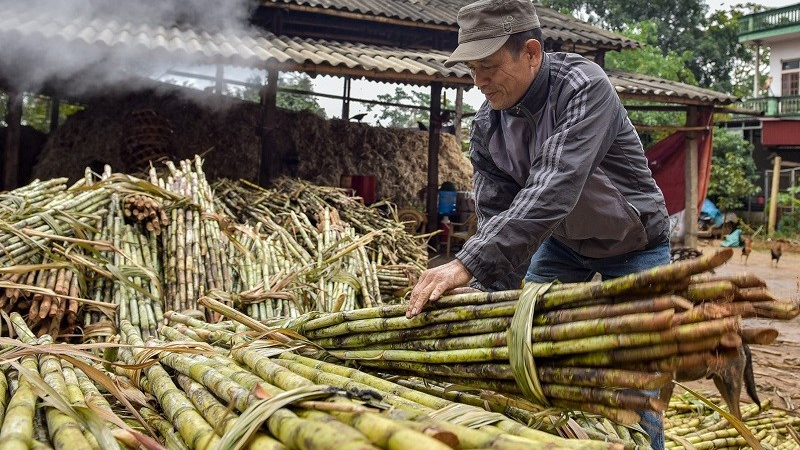 Sugarcane Juicing
Sugarcane Juicing
After harvesting sugarcane from the fields, the leaves are removed, and the canes are fed into a machine to extract the juice.
Stage 2: Boiling the Sugarcane Juice
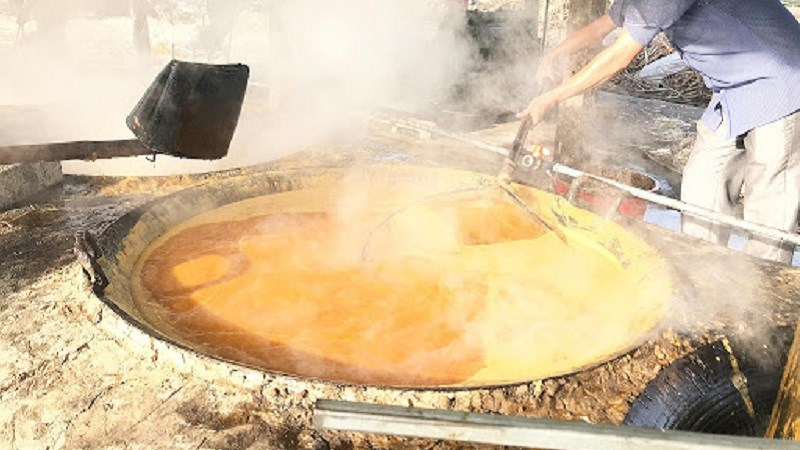 Boiling Sugarcane Juice
Boiling Sugarcane Juice
The boiling process typically takes 10 to 12 hours in a large cast iron pan over a low flame.
The amount of juice and the frequency of skimming the foam vary depending on regional traditions and secret family recipes, resulting in molasses with a beautiful color and authentic flavor.
Adjusting the flame is also a critical step in ensuring the quality of the final product.
Stage 3: Filtering the Molasses
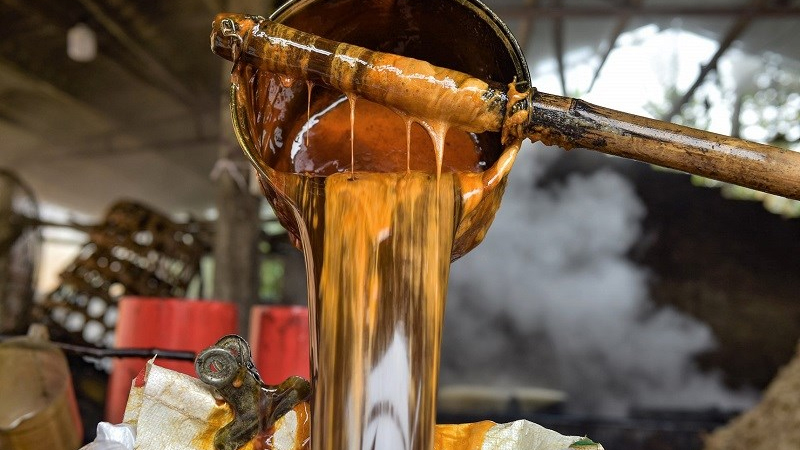 Filtering Molasses
Filtering Molasses
This stage aims to ensure the clarity of the molasses and remove any remaining sediment.
According to the people of Hon Ro in Phu Yen province, their secret lies in using a specific type of fabric (similar to the kind used by American soldiers to launch signal flares at night) for filtering the molasses.
The choice of filtering fabric is crucial to removing any residual sediment from the molasses after boiling.
5 Where to Buy Molasses and Price
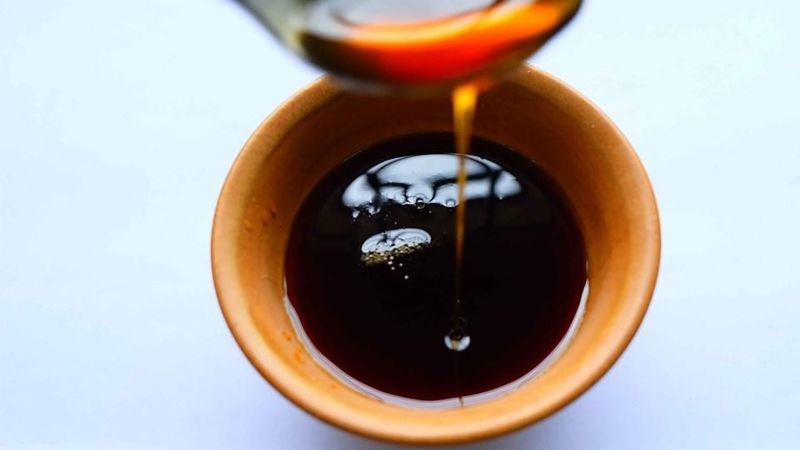 Where to Buy Molasses
Where to Buy Molasses
Molasses is widely available in the market, including local markets, supermarkets, food stores, and e-commerce platforms.
Reference price: VND 100,000/liter.
We hope that this article has provided you with a better understanding of molasses, its characteristics, and its numerous benefits for our health and well-being.
Sources: Lao Dong Newspaper, Psychotherapy and Psychosomatics Journal













